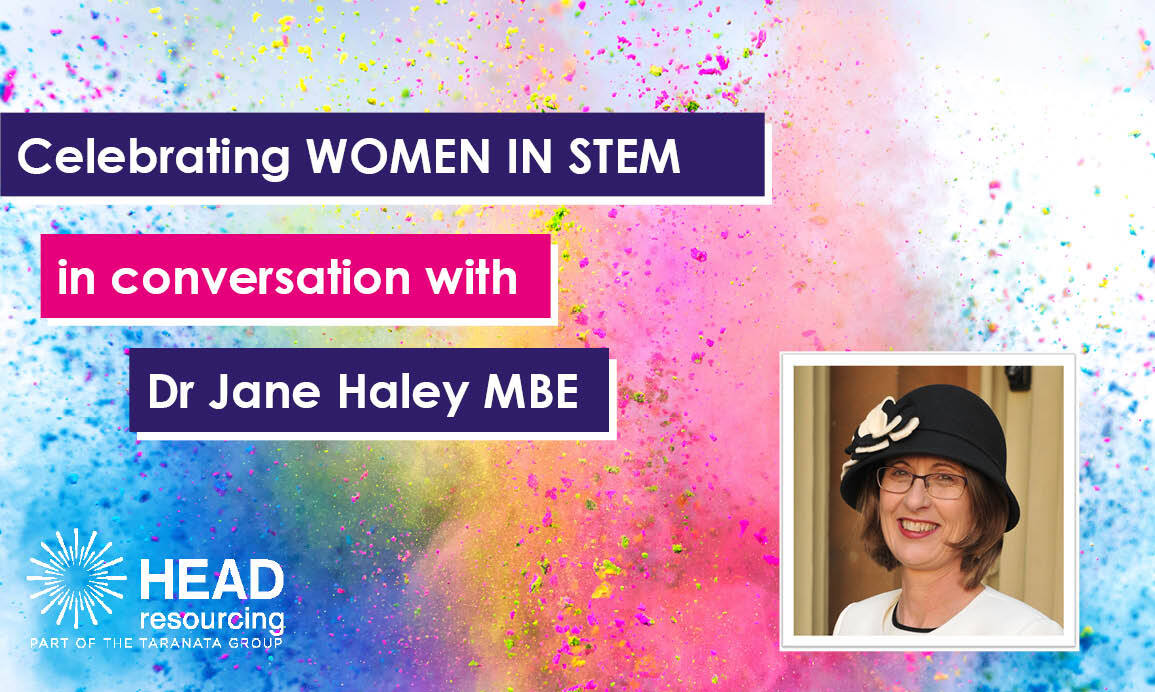The second in our ‘Celebrating Women in STEM’ series welcomes Dr Jane Haley MBE, Edinburgh Neuroscience Scientific Coordinator at the University of Edinburgh. Jane discusses her career path, the sacrifices she made when becoming a mother, and that there is more than one way to contribute and make a real difference in the biomedical science field and in the wider STEM community...
Q. Can you tell us a little about your background and career to date? What attracted you to the STEM sector and what do you think makes it a good place for women?
I’ve always loved science. I went to an all-girls secondary school and I feel this gave me a bit of space to be able to explore my love of the science subjects without the pressure of feeling they were ‘subjects for the boys’. I was still about the only girl interested though! At my sixth form college there were only two girls in each of my science A level classes so I’m glad I’d developed a wee bit of confidence before facing that.
At university it was completely opposite – there were only two men in our class of women. That’s the difference in the biomedical science field! I had a brilliant time and specialised in neuroscience-related subjects as I was attracted to understanding how the brain works. I’ve never really looked back.
I love the intellectual stimulation of working in the academic sector. Anyone who likes to ask questions and figure out how things work would enjoy the constant uncovering of new data and findings. Universities are typically large organisations so there is plenty of scope to find people who are not just colleagues but friends too. I can honestly say that most of my colleagues are also friends on some level – it’s a friendly and welcoming environment.
Q. Is there a clear difference in your experiences of being a female in the sector at the beginning of your career and now?
Yes and no. In society generally there is a massive reduction in everyday sexism. I no longer change my route home if I have to walk past a bin lorry or a building site - yes, in the 80’s we did that because of the whistling and cat-calls you’d get if you tried to walk past. I’ve found the higher education sector to be more forward-thinking so I have always felt safe and I can honestly say I don’t feel I’ve ever faced active discrimination.
We do have a different problem though and it relates to career progression. The biomedical science field is full of women at the start – about 65% of undergraduates are women - but as you progress through your career this drops off. By the time you count professors only about 20% are female. Although this is an improvement from the 10% in the past it doesn’t really feel like things have changed as much as it should. Women in positions of real leadership and power are still very much in the minority.
Q. If you were with a group of peers this evening and talking openly about this topic, what would be the key issues discussed?
I think we would probably discuss what the barriers are to success, and also what success actually is and how do you genuinely measure it?
The research environment has a constant flow of people coming and going – fixed term contracts are the norm until you are quite far up the career ladder so people are moving every 2-3 years. That is exciting and stimulating when you are starting out after your PhD (so about 25-30 years old) but can become problematic when you want to settle down.
The drop-off in women remaining on an academic career path (the ‘leaky pipeline’) has many roots so it’s hard to identify a single issue. One issue is related to career transition timing. Just at the point where you should be setting up your independent research laboratory is the same time some women are considering starting a family (about age 30-35). Many women find they can’t manage both so move in to other sectors that are able to better accommodate more flexible working.
Which takes me to an issue that has bothered me for some time – how do you measure success? By the standard measures, I am a failure. I am part of that leaky pipeline. I was a PhD and then postdoctoral researcher for 20 years but never set up my own lab. My then-husband was in the same field so he set up a lab while I looked after our son and worked as a part time researcher in someone else’s laboratory. We felt it wasn’t possible for us both to be working long hours setting up labs, especially since post-PhD starting salaries are not very high so childcare costs were an issue. I eventually stopped doing research myself and moved into a science administration post. At that point I became a ‘failure’.
But, and it’s a big BUT, I still use the knowledge from my education to make a difference. I run an organisation at the university that supports over 200 research groups and creates an environment that enables them to succeed. I sit on national and international science society committees, and for the change I enabled I was made an MBE. And yet, I am a statistical failure.
Everyone has to balance life and work but the burden of the career compromise still falls on women. That being said, I would argue that women in STEM are out there, everywhere, succeeding and being amazing role models.
